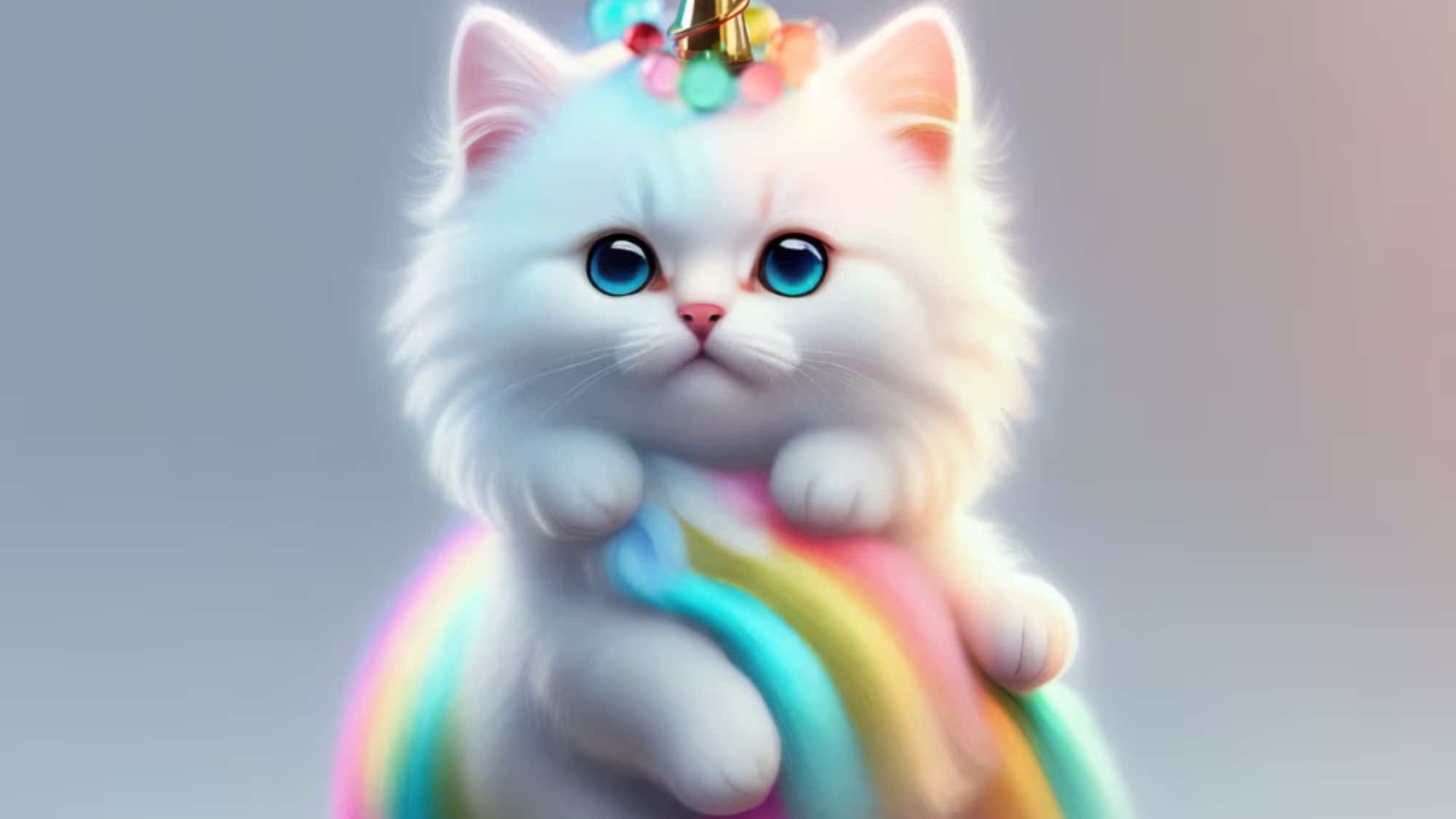Cute review: an 'unsettling' yet 'highly seductive' exhibition
The concept of cuteness is explored in full force at this Somerset House show

A free daily email with the biggest news stories of the day – and the best features from TheWeek.com
You are now subscribed
Your newsletter sign-up was successful
Cuteness is everywhere, these days, said Rhik Samadder in The Observer. Emojis, kittens, bunnies and fluffy soft toys have taken over. In its broadest sense, biologists believe, cuteness is "an evolutionary adaptation, developed by babies so we don't abandon them". But it is also a cultural phenomenon, and in the decades since the ascendancy of the internet, it has become a cult.
Cat pictures – cited by Tim Berners-Lee as the most surprising and unforeseen use of his creation – and other saccharine animal memes have become the lingua franca of the World Wide Web; this kind of infantilisation has profoundly influenced "the way we talk online", and increasingly in real life, too.
An ambitious new exhibition at Somerset House is a bold attempt to analyse cuteness's role in our society. Bringing together everything from toys to video games to contemporary art, it seeks to examine cuteness, to explain why we so readily fall for it, and how it became both a marketing tool and a "subversive" reaction to consumer culture.
The Week
Escape your echo chamber. Get the facts behind the news, plus analysis from multiple perspectives.

Sign up for The Week's Free Newsletters
From our morning news briefing to a weekly Good News Newsletter, get the best of The Week delivered directly to your inbox.
From our morning news briefing to a weekly Good News Newsletter, get the best of The Week delivered directly to your inbox.
The earliest exhibits here date from the 19th century, said Hettie Judah in The i Paper – when the illustrator Louis Wain and the photographer Harry Pointer each created anthropomorphic images of cats posing in "winsome attitudes". But the style we might most readily associate with "cuteness" has its origins in early 20th century Japan, known as kawaii ("loveable").
The exhibition features a plethora of products associated with the aesthetic, which has long "been used to promote consumer goods". Perhaps the most famous example of this "marketing phenomenon" is the character Hello Kitty, whose trademark owners are sponsors of the show and of whom likenesses recur throughout: there is a sort of "Hello Kitty temple" at Somerset House, but scant discussion of the brand's "sheer weirdness".
Herein lies the problem with this event: on the one hand, it aspires to address how cuteness is often sinister and manipulative; on the other, it aims "to appeal to cuteaholics who want to spend whole afternoons lounging on pink cushions and drinking bubble tea". Ultimately, it ends up "not entirely satisfying" either impulse.
I disagree, said Oliver Wainwright in The Guardian. This show is an "uncanny and unsettling, but also highly seductive" experience. We see all manner of twisted exhibits, from the AI-designed portraits of "cute/creepy kitten monsters", to a "cuddly OxyContin-shaped plushie" conceived as a marketing tool for the notorious opioid, to a Nazi propaganda photo of Hitler feeding baby deer. At the exhibition's heart lies a warning: that innocent imagery can hide the most toxic of messages. It adds up to "a thoughtful exploration of the cult and culture of cuteness". Its "saccharine embrace" will "both entrance and repulse you".
A free daily email with the biggest news stories of the day – and the best features from TheWeek.com
Somerset House, London WC2 (0333-320 2836, somersethouse.org.uk). Until 14 April
Sign up to The Week's Arts & Life newsletter for reviews and recommendations
-
 The ‘ravenous’ demand for Cornish minerals
The ‘ravenous’ demand for Cornish mineralsUnder the Radar Growing need for critical minerals to power tech has intensified ‘appetite’ for lithium, which could be a ‘huge boon’ for local economy
-
 Why are election experts taking Trump’s midterm threats seriously?
Why are election experts taking Trump’s midterm threats seriously?IN THE SPOTLIGHT As the president muses about polling place deployments and a centralized electoral system aimed at one-party control, lawmakers are taking this administration at its word
-
 ‘Restaurateurs have become millionaires’
‘Restaurateurs have become millionaires’Instant Opinion Opinion, comment and editorials of the day
-
 Kia EV4: a ‘terrifically comfy’ electric car
Kia EV4: a ‘terrifically comfy’ electric carThe Week Recommends The family-friendly vehicle has ‘plush seats’ and generous space
-
 Bonfire of the Murdochs: an ‘utterly gripping’ book
Bonfire of the Murdochs: an ‘utterly gripping’ bookThe Week Recommends Gabriel Sherman examines Rupert Murdoch’s ‘war of succession’ over his media empire
-
 Gwen John: Strange Beauties – a ‘superb’ retrospective
Gwen John: Strange Beauties – a ‘superb’ retrospectiveThe Week Recommends ‘Daunting’ show at the National Museum Cardiff plunges viewers into the Welsh artist’s ‘spiritual, austere existence’
-
 Travel for all: 6 of the world’s most accessible destinations
Travel for all: 6 of the world’s most accessible destinationsThe Week Recommends Experience all of Berlin, Singapore and Sydney
-
 Bad Bunny’s Super Bowl: A win for unity
Bad Bunny’s Super Bowl: A win for unityFeature The global superstar's halftime show was a celebration for everyone to enjoy
-
 Book reviews: ‘Bonfire of the Murdochs’ and ‘The Typewriter and the Guillotine’
Book reviews: ‘Bonfire of the Murdochs’ and ‘The Typewriter and the Guillotine’Feature New insights into the Murdoch family’s turmoil and a renowned journalist’s time in pre-World War II Paris
-
 The 8 best TV shows of the 1960s
The 8 best TV shows of the 1960sThe Week Recommends The standout shows of this decade take viewers from outer space to the Wild West
-
 The year’s ‘it’ vegetable is a versatile, economical wonder
The year’s ‘it’ vegetable is a versatile, economical wonderthe week recommends How to think about thinking about cabbage